Is chemotherapy really worth it? It’s a question many people ask and rightly so. While some believe it’s absolutely necessary – sometimes it is – we often hear devastating stories of how it completely alters someone’s life and not for the better.
One team of researchers from Australia, using data from both their country and the USA, even found that only 2% of cancer patients live more than five years after chemo treatments. So, it makes you wonder what will truly lead to the highest quality of life: chemotherapy or no chemotherapy?
But First, What Is Chemotherapy?

When it comes down to it, cancer treatments encompass a wide range of options. To name some, there is surgery, radiation therapy, immunotherapy, targeted therapy, hormone therapy, stem cell transplants, precision medicine, and chemotherapy.[1] There is no saying which alternative is better than the other because different people means different treatments.
If someone chooses chemotherapy, whether or not it’s in combination with other treatments, oncologists will use a drug or group of drugs to hopefully do two things: 1) ease cancer symptoms by shrinking painful tumors and 2) slowing or stopping tumor growth to cure the cancer.[2]
Part of the reason chemo is so troubling is because it’s a systemic therapy, which means it can affect your cells throughout your entire body as opposed to targeted body parts or organs. Not only does it kill cancer cells, but every white cell in its path. This is why chemotherapy patients can experience a wide range of symptoms from head to toe, inside and out.
Read More: 10 of The Most Terrifying Drug Side Effects
What Are Common Side Effects of Chemotherapy?

The extent to which cancer patients will experience these symptoms will vary, but can include:[3]
- Nausea
- Vomiting
- Diarrhea
- Hair loss
- Loss of appetite
- Fatigue
- Fever
- Mouth sores
- Pain
- Constipation
- Easy bruising
14 More Side Effects of Chemotherapy You Probably Didn’t Know About

When 41-year-old cancer survivor Cindy Lupica was going through chemotherapy for her gestational trophoblastic tumor, she learned “first-hand the nastiness and depth of chemo side effects.” In her piece for I Had Cancer, Cindy shares surprising chemo side effects of which the average person is not aware.
“Depending on the type of chemo, the length and the strength, some [side effects] may vary from person to person,” says Cindy.[4] “But below I’ve written out a list of some of the side effects that you may want to be prepared for, based on my experience.”
1) Neuropathy
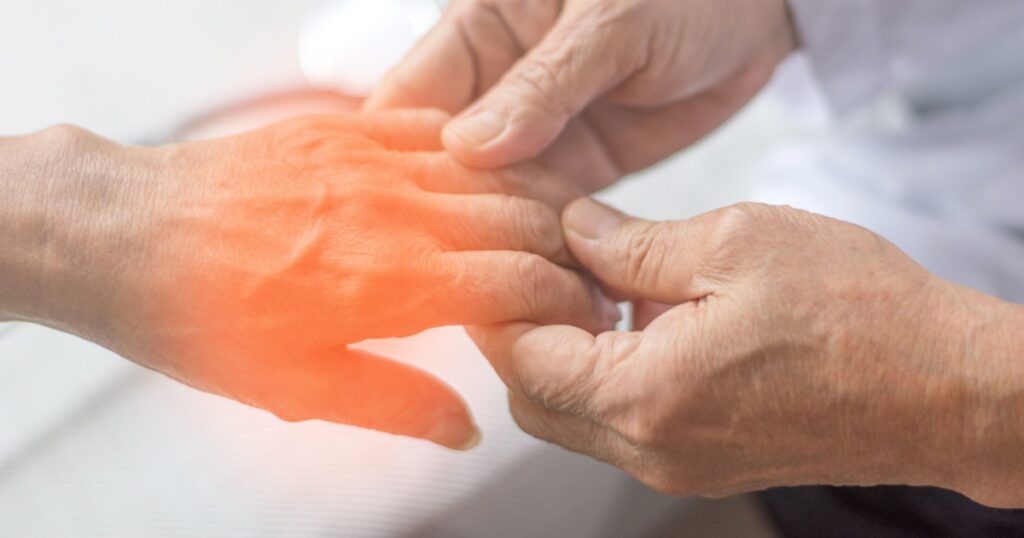
Otherwise known as nerve pain, certain chemotherapy drugs can damage nerves locally or all over. This results in hypersensitivity and painful, tingling, burning, and prickling sensations on your skin and in your fingertips, toes, and even tongue!
Natural Solutions: When everything is painful to the touch, day-to-day tasks become virtually impossible. To remedy this issue, some people wear thin gloves to minimize direct skin exposure to other objects. There have also been accounts of people finding relief from nerve pain using acupuncture.
2) Neutropenia
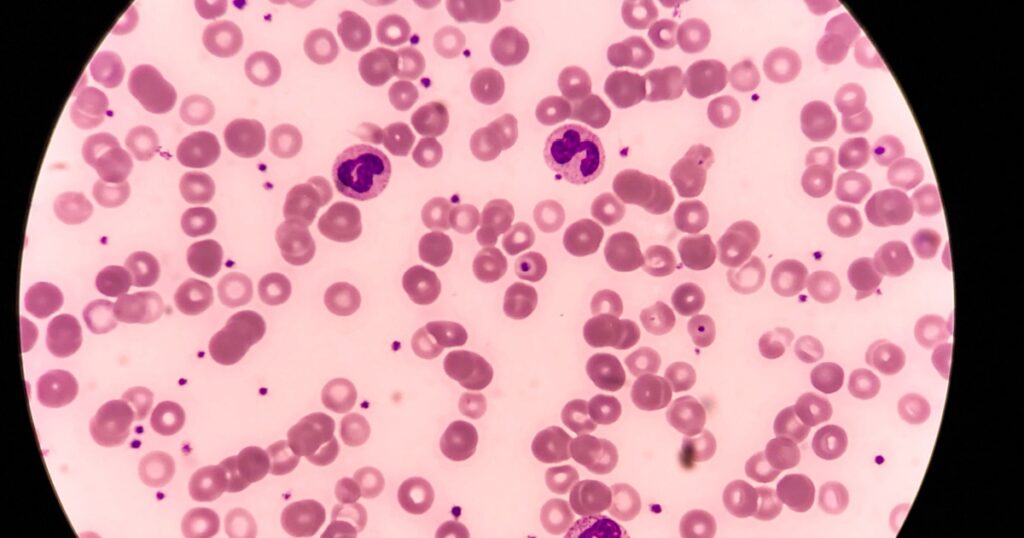
Remember how we mentioned that chemo drugs not only destroy rapidly growing cancer cells, but healthy white blood cells, too? Well, neutropenia is one of the results of chemotherapy and occurs when treatment kills neutrophils, a specific type of white blood cell that fights off bacterial infections.[5]
Natural Solutions: It seems counterintuitive but for anyone who becomes neutropenic, doctors suggest completely avoiding raw foods. This is because bacteria on a carrot, for example, can infect your already vulnerable immune system and possibly lead to death. Hospitals also highly recommend any and all visitors to use masks and avoid physical contact to reduce risk of germs transferring.
3) Anemia
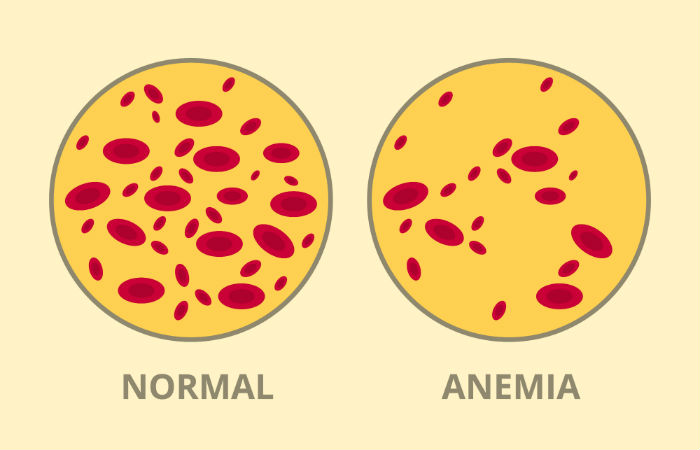
In addition to killing white blood cells, chemotherapy also destroys red ones. A depleted red blood cell count causes a condition called anemia and symptoms including increased heartrate, extreme fatigue, shortness of breath, and dizziness.
Natural Solutions: Some chemo patients require blood transfusions. However, to remedy these symptoms of anemia, you can eat a balanced diet, get all the rest you can, and make sure you stay hydrated!
Read More: Cryotherapy Treatment Saves Nurse with Stage 4 Cancer
4) Premature Menopause or Infertility

Cindy highlights that, regardless of being male or female, almost all chemotherapy drugs damage reproductive glands. Depending on age, some people must face the reality not being able to have their own children.
Natural Solutions: In this day and age, however, many people are turning to adoption. With regards to premature menopause, naturopathic doctor Serena Goldstein suggests 24 foods you can eat to help treat menopause symptoms.
5) Bone Pain

Both the type of cancer and chemodrugs can contribute to severe bone pain. Whichever combination it is, chemotherapy patients often experience bone density loss as a result of depleted calcium or vitamin D, nerve damage, and drugs.
Natural Solutions: To combat bone loss, doctors might prescribe you vitamin D or calcium supplements or a diet high in those nutrients. Research also shows that gentle workouts like yoga can prevent osteoporosis and increase bone density over time.
6) Organ Damage
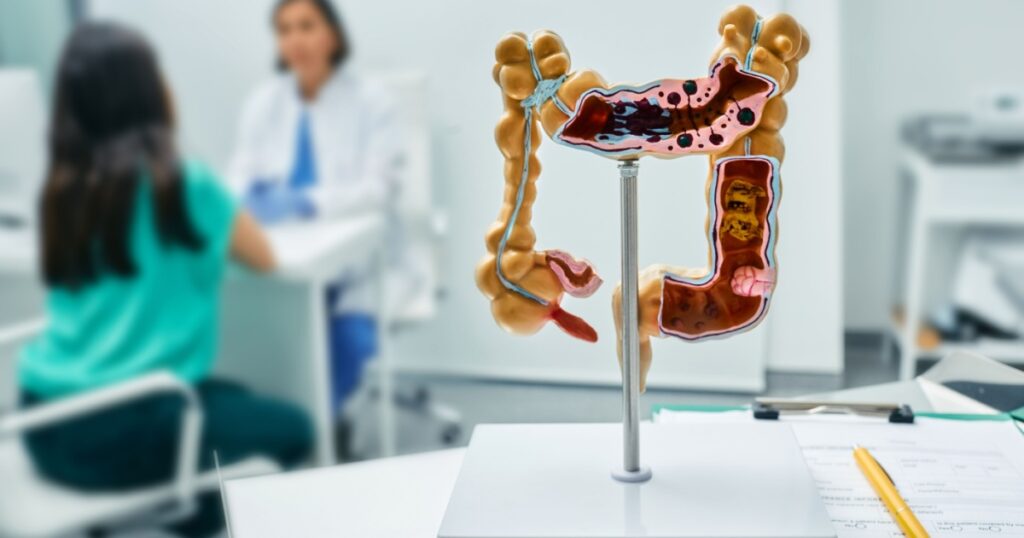
Chemotherapy often damages vital organs including the heart, lungs, liver, and kidneys.
Natural Solutions: Routine check-ups are your best bet to make sure the functioning of these organs is high enough. Keep an open line of communication with your personal healthcare provider(s) and don’t hesitate to reach out to them with any questions or concerns.
7) Hearing Loss
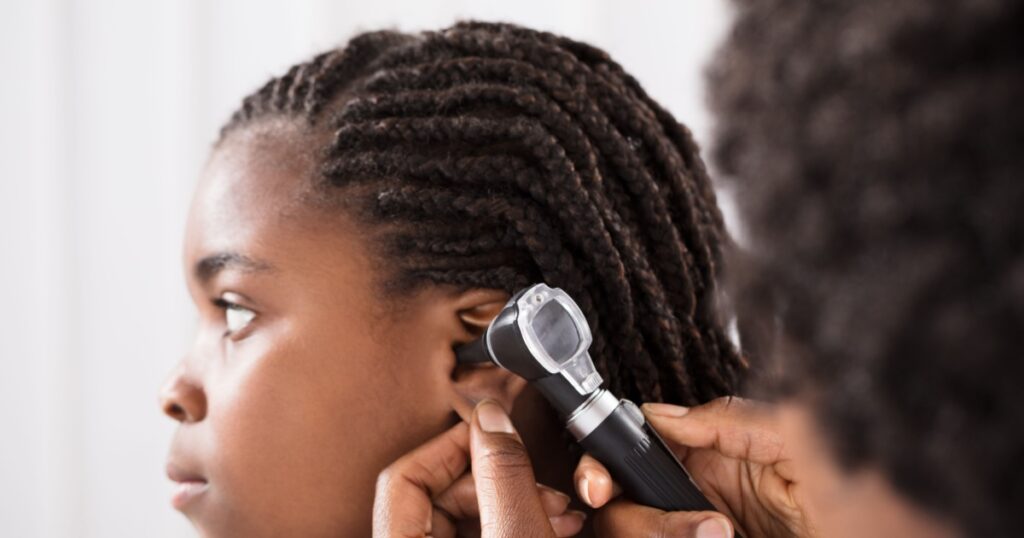
In some cases, chemotherapy harms your hearing (e.g., tinnitus). You may hear sounds including ringing, roaring, hissing or humming, which can make daily tasks or sleep near impossible. Luckily, for Cindy (and others), these tinnitus symptoms gradually disappeared after completing chemotherapy.
Natural Solutions: Doctors might suggest a hearing aid, but you can also try these 11 ways to reverse symptoms of tinnitus. You can also experiment with avoiding consuming aspirin, caffeine, alcohol, and salt; these have been known to trigger similar symptoms.
8) Vision Loss
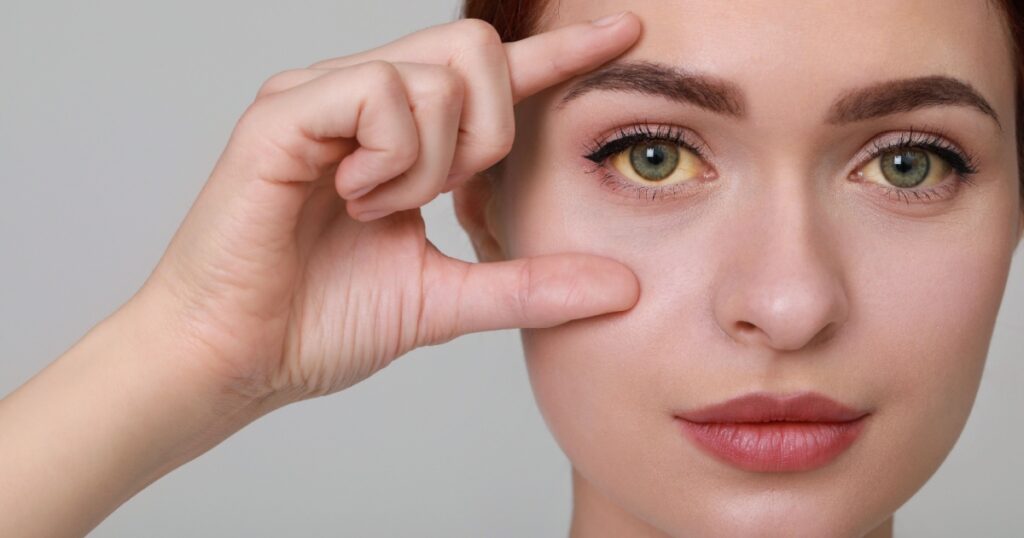
After her first round of chemotherapy, Cindy “noticed [her] eyeside blurred and dulled.” Other people have also claimed to experience dryness, itchiness, and the development of cataracts.
Natural Solutions: If you don’t necessarily need glasses, try eating these 12 foods to improve your eyesight (as long as they’re approved by your doctor). This article also explores how to naturally prevent cataracts, dry eyes, and blurred vision.
Read More: Researchers Treat HER2-Positive Breast Cancer Without Chemo
9) Oral Health Decline

From mouth sores to tooth enamel and root damage, chemotherapy drugs take quite a surprising toll on oral health. Depending on the severity of the drugs’ effects, gums can recede, teeth can become loose or fall out, and holes can even form in the teeth themselves.
Natural Solutions: If things like that start to happen, ask your doctor about natural antibacterial mouthwashes to help prevent or eliminate infection. For people experiencing general mouth soreness, ice chips can offer relief. Cindy also suggests avoiding foods that are hard, sharp, hot, or spicy.
10) Weight Loss or Gain

The combination and timing of chemotherapy drugs and steroids can put you in a vicious cycle of weight gain and weight loss. These back-and-forth weight fluctuations in such a short time period can take quite a toll on your body and actually render chemo treatments less effective.
Natural Solutions: We can’t really suggest what to eat but speak to a nutritionist at the hospital who can work closely with you. Doing this will help determine what to eat and when to eat to help maintain the chemo’s effectiveness.
11) Severe Headaches and Jaw Soreness

According to Cindy, some chemotherapy patients have claimed that the strongest painkillers haven’t been able to remedy the severity of headaches and jaw pain. As explained on Cancer.Net, certain cancers, chemotherapy drugs, and subsequent infections can all contribute to this side effect.
Natural Solutions: Depending on whether the scents trigger a negative response, you can inhale essential oils for chronic headaches and general soreness. Trying as best you can to avoid triggers including loud noises or bright lights can help a lot.
12) Changes in Ability to Taste or Smell

In Cindy’s case, she experienced something called dysnomia,” in which her sense of smell changed drastically. That is, certain things that once smelled pleasant no longer did, and vice versa. Similarly, cancer patients undergoing chemo can also experience changes in taste, which is known as dysgeusia. This side effect will present differently in every person. If and when it does, you can expect to either love or hate the smell or taste of certain things!
Natural Solutions: It’s impossible to know what scents or flavors will trigger nausea or vomiting, or complete joy. You’ll just have to take them as they come. Once you have it figured out, though, just do your best to embrace those things you love and 100 percent avoid those you do not. Let your nurses, doctors, family, and friends know as well so they can better help cater to your needs.
13) Anti-Anxiety Drug or Steroid Addiction
During chemotherapy, doctors might give patients anti-anxiety or steroidal medication to help battle both the mental and physical side effects. While these extra drugs may not affect everyone negatively, some people can become addicted without even realizing it.
Natural Solutions: If this worries you, immediately talk with your doctor about ways to avoid these drugs or find healthy ways to wean off them post-chemo. Alternatively, Cindy “turned to essential oils for anxiety, faith, and prayer.”
Read More: Doctor’s Thought Woman Had a Sinus Infection, But It Was Actually An Extremely Rare Cancer
14) Chemo Brain

Cindy defines chemo brain as “memory loss, particularly short-term memory loss, as a result of chemotherapy.”[4] Some people even describe it as a very intense brain fog or like the early stages of Alzheimer’s disease. While more studies are needed to confirm this surprising symptom, there are ways to keep your brain as healthy as possible.
Natural Solutions: Before adding foods that are touted as being brain-boosting to your diet, be sure to clarify with your doctor that it’s okay to do so. The safest and most effective thing you could do to combat chemo brain is to practice brain exercises. Word searches, puzzles, crosswords, and anything similar!
Did you already know any of those chemotherapy side effects?
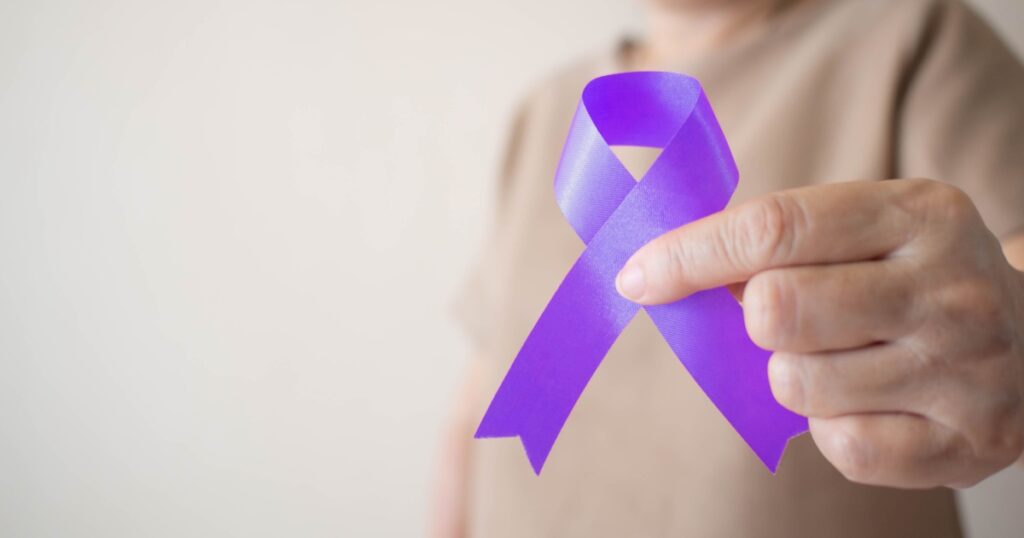
It’s important to remember that people journeying through chemotherapy will experience symptoms and side effects differently. But, we hope you found this list of little-known chemo side effects helpful and that, through it, there’s someone in your life who will find relief.
Disclaimer: Please consult a physician before beginning any treatment program or making any adjustment to your health care, diet, and/or lifestyle.
Read More: She Was Diagnosed With Stage 3 Cancer After Ignoring This ‘Embarrassing Symptom’
Sources
- Types of Cancer Treatment. (n.d.). Retrieved from https://www.cancer.gov/about-cancer/treatment/types
- Chemotherapy. (n.d.). Retrieved from https://www.cancer.gov/about-cancer/treatment/types/chemotherapy
- Chemotherapy. (2017, April 27). Retrieved from
- https://www.mayoclinic.org/tests-procedures/chemotherapy/about/pac-20385033Lupica, C. (n.d.). 21 Chemo Side Effects Everyone Should Know About. Retrieved from https://www.ihadcancer.com/h3-blog/06-23-2016/21-chemo-side-effects-everyone-should-know-about
- Neutropenia (low neutrophil count). (2018, January 11). Retrieved from https://www.mayoclinic.org/symptoms/neutropenia/basics/definition/sym-20050854

